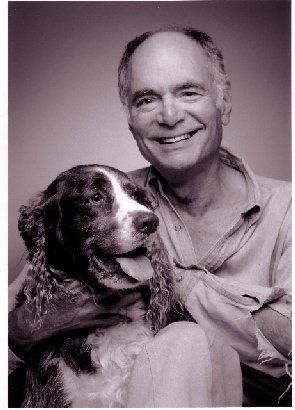
UNIVERSITY OF TORONTO LINKS
Robert Sward : Biography

Robert Sward :
Born on the Jewish North Side of Chicago, bar mitzvahed, sailor, amnesiac, university professor (Cornell, Iowa, Connecticut College, University of Victoria), newspaper editor, food reviewer, father of five children, husband to four wives, my writing career has been described by critic Virginia Lee as a "long and winding road."
FOUR INCARNATIONS
1. Switchblade Poetry: Chicago Style
I began writing poetry in Chicago at age 15, when I was named corresponding secretary for a gang of young punks and hoodlums called the Semcoes. A Social Athletic Club, we met at various locations two Thursdays a month. My job was to write postcards to inform my brother thugs—who carried switchblade knives and stole cars for fun and profit—as to when, where and why we were meeting.
Poems
Rhyming couplets seemed the appropriate form to notify characters like lightfingered Foxman, cross-eyed Harris, and Irving "Koko," of upcoming meetings. An example of my switchblade juvenilia:
The Semcoes meet next Thursday night
at Speedway
Koko's. Five bucks dues, Foxman, or fight.
Koko was a young boxer whose father owned Chicago's Speedway Wrecking Company and whose basement was filled with punching bags and pinball machines. Koko and the others joked about my affliction—the writing of poetry—but were so astonished that they criticized me mainly for my inability to spell.
2. Sailor Librarian: San Diego
At 17, I graduated from high school, gave up my job as soda jerk and joined the Navy. The Korean War was underway; my mother had died, and Chicago seemed an oppressive place to be.
My thanks to the U.S. Navy. They taught me how to type (60 words a minute), organize an office, and serve as a librarian. In 1952 I served in Korea aboard a 300-foot long, flat-bottomed Landing Ship Tank (LST). A Yeoman 3rd Class, I became overseer of 1200 paperback books, a sturdy upright typewriter, and a couple of filing cabinets.
The best thing about duty on an LST is the ship's speed: 8-10 knots. It takes approximately one month for an LST to sail between San Diego and Pusan, Korea. In that month I read Melville's Moby Dick, Whitman's Leaves of Grass, Thoreau's Walden, Isak Dinesen's Winter's Tales, the King James Version of the Bible, Shakespeare's Hamlet, King Lear, and a biography of Abraham Lincoln.
While at sea, I began writing poetry as if poems, to paraphrase Thoreau, were secret letters from some distant land.
I sent one poem to a girl named Lorelei with whom I was in love. Lorelei had a job at the Dairy Queen. Shortly before enlisting in the Navy, I spent $15 of my soda jerk money taking her up in a single engine, sight-seeing airplane so we could kiss and—at the same time—get a good look at Chicago from the air. Beautiful Loreli never responded to my poem. Years later, at the University of Iowa Writers' Workshop, I learned that much of what I had been writing (love poems inspired by a combination of lust and loneliness) belonged, loosely speaking, to a tradition—the venerable tradition of unrequited love.
3. Mr. Amnesia: Cambridge
In 1962, after ten years of writing poetry, my book, Uncle Dog & Other Poems, was published by Putnam in England. That was followed by two books from Cornell University Press, Kissing the Dancer and Thousand-Year-Old Fiancee. Then in 1966, I was invited to do 14 poetry readings in a two-week stretch at places like Dartmouth, Amherst, and the University of Connecticut.
The day before I was scheduled to embark on the reading series, I was hit by a speeding MG in Cambridge, Massachusetts.
I lost my memory for a period of about 24 hours. Just as I saw the world fresh while cruising to a war zone, so I now caught a glimpse of what a city like Cambridge can look like when one's inner slate, so to speak, is wiped clean.
4. Santa Claus: Santa Cruz
In December, 1985, recently returned to the U.S., Canadian citizen, a free lance writer in search of a story, I sought and found employment as a Rent-a-Santa Claus. Imagine walking into the local Community Center and suddenly, at the sight of 400 children, feeling transformed from one's skinny, sad-eyed self, into an elf—having to chant the prescribed syllables, "Ho, Ho, Ho."
What is poetry? For me, it's the restrained music of a switchblade knife. It's an amphibious warship magically transformed into a basketball court, and then transformed again into a movie theater showing a film about the life of Joan of Arc. It is the vision of an amnesiac, bleeding from a head injury, witnessing the play of sunlight on a redbrick wall.
Poetry comes to a bearded Jewish wanderer, pulling on a pair of high rubber boots with white fur, and a set of musical sleigh bells, over blue, fleece-lined sweat pants. It comes to the father of five children bearing gifts for 400 and, choked up, unable to speak, alternately laughing and sobbing the three traditional syllables—Ho, Ho, Ho—hearing at the same time, in his heart, the more plaintive, tragic—Oi vay, Oi vay, Oi vay.
Robert Sward's works copyright © to the author.
